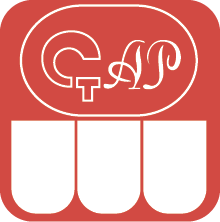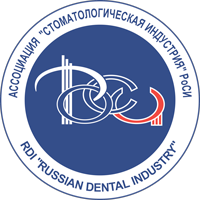DOI:
10.37988/1811-153X_2025_1_84Apical perimplantitis: etiology, clinic and treatment
Downloads
Abstract
Apical peri-implantitis was first described in 1992. This complication does not occur often and is asymptomatic in most cases. However, when immunosuppressive conditions occur associated with stress or a previous acute respiratory viral disease, the symptoms may resemble those of exacerbation of chronic periodontitis. The purpose of the article was to review the etiology, risk factors, features of the clinical course, treatment methods and prognosis of apical peri-implantitis with the author’s clinical examples of the pathology discussed. Based on data from reference sources and our own clinical experience, the article provides a navigational decision-making scheme depending on the form of peri-implantitis. In the presence of a fistula tract, against the background of local symptoms of inflammation, surgical treatment of apical peri-implantitis is recommended. Mechanical (grinding, polishing) and chemical treatment of the implant surface in various ways is Hsu when there is adequate surgical access to the pathological focus with good visualization of the implant surface and bone defect. Otherwise, the treatment of choice is resection of the apical part of the implant or removal of the implant. Methods of guided bone regeneration are applicable only when the doctor is completely confident that the surface of the implant is not infected.Key words:
perimplantitis, apical perimplantitis, treatment of pereimplantitisFor Citation
[1]
Kasperovich M.L., Vasilyeva V.A., Chuev V.V., Chueva A.A. Apical perimplantitis: etiology, clinic and treatment. Clinical Dentistry (Russia). 2025; 28 (1): 84—90. DOI: 10.37988/1811-153X_2025_1_84
References
- McAllister B.S., Masters D., Meffert R.M. Treatment of implants demonstrating periapical radiolucencies. Pract Periodontics Aesthet Dent. 1992; 4 (9): 37—41. PMID: 1308162
- Quirynen M., Vogels R., Alsaadi G., Naert I., Jacobs R., van Steenberghe D. Predisposing conditions for retrograde peri-implantitis, and treatment suggestions. Clin Oral Implants Res. 2005; 16 (5): 599—608. PMID: 16164468
- Kim K.T., Eo M.Y., Nguyen T.T.H., Kim S.M. General review of titanium toxicity. Int J Implant Dent. 2019; 5 (1): 10. PMID: 30854575
- Chaffee N.R., Lowden K., Tiffee J.C., Cooper L.F. Periapical abscess formation and resolution adjacent to dental implants: a clinical report. J Prosthet Dent. 2001; 85 (2): 109—12. PMID: 11208196
- Albrektsson T., Chrcanovic B., Mölne J., Wennerberg A. Foreign body reactions, marginal bone loss and allergies in relation to titanium implants. Eur J Oral Implantol. 2018; 11 Suppl 1: S37—S46. PMID: 30109298
- Bousdras V., Aghabeigi B., Hopper C., Sindet-Pedersen S. Management of apical bone loss around a mandibular implant: a case report. Int J Oral Maxillofac Implants. 2006; 21 (3): 439—44. PMID: 16796288
- Cordioli G., Majzoub Z. Heat generation during implant site preparation: an in vitro study. Int J Oral Maxillofac Implants. 1997; 12 (2): 186—93. PMID: 9109268
- Dahlén G., Samuelsson W., Molander A., Reit C. Identification and antimicrobial susceptibility of enterococci isolated from the root canal. Oral Microbiol Immunol. 2000; 15 (5): 309—12. PMID: 11154422
- Ramanauskaite A., Juodzbalys G., Tözüm T.F. Apical/retrograde periimplantitis/implant periapical lesion: Etiology, risk factors, and treatment options: A systematic review. Implant Dent. 2016; 25 (5): 684—97. PMID: 27579555
- Waasdorp J., Reynolds M. Nonsurgical treatment of retrograde peri-implantitis: a case report. Int J Oral Maxillofac Implants. 2010; 25 (4): 831—3. PMID: 20657882
- Zhou Y., Cheng Z., Wu M., Hong Z., Gu Z. Trepanation and curettage treatment for acute implant periapical lesions. Int J Oral Maxillofac Surg. 2012; 41 (2): 171—5. PMID: 22000955
Downloads
Received
November 25, 2024
Accepted
February 25, 2025
Published on
April 7, 2025









